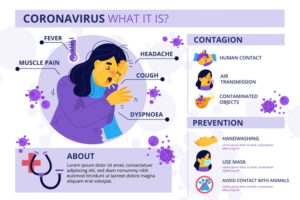
With the United States bracing itself against the impending onslaught of the 2019 Coronavirus, employers need to focus on prevention and workplace safety, anticipate concerns of employees, implement pro-active procedures, and avoid legal pitfalls.
Federal officials warned schools and businesses to prepare for a nationwide spread that has killed more than 2,770 worldwide. Recent outbreaks in Italy, Iran and South Korea sparked concerns about a global pandemic.
The stock markets have dropped, foreign governments have closed schools, businesses have implemented remote working policies with employees working from home and quarantines have been implemented.

The CDC indicated that the national response to a widespread Coronavirus outbreak would follow a 2017 plan for a similarly novel flu pandemic, triggering school and business closures, travel restrictions on outbreak regions and quarantines of infected patients.
There is no native immunity or vaccine in place (at least not for a year). Standard precautions are recommended: washing hands with soap and water for at least 20 seconds, or, if soap is not available, using hand sanitizer (60% alcohol content); disinfecting touchable objects and surfaces; avoiding close contact with people who are sick, and staying home when sick.
What’s an Employer to Do?
OSHA’s “General Duty Clause,” 29 U.S.C. Section 654, 5(a)1, requires employers to provide “employment and a place of employment which are free from recognized hazards that are causing or likely to cause the death or serious physical harm to employees.” Consequently, an employer has an affirmative duty to protect employees from a pandemic virus. The federal Protecting America’s Workers Act (PAWA) expanded coverage to the public sector.












